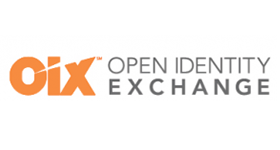MyIdentity is an identity trust scheme, enabling people to get their identity verification done to a trusted set of standards, rules and regulations, aligned to the Government’s Digital Identity & Attributes Trust Framework (DIATF). The UK DIATF sets out baseline rules which organisations must follow to become approved digital verification service providers, additional sets of rules, known as schemes can be developed on top of the trust framework.
Identity service providers (IDSPs) can choose to be certified against schemes, in addition to gaining certification against the trust framework. See which IDSPs are certified HERE.
Etive started working on identity in 2014 working with the likes of the DWP, Birmingham City Council and the London Boroughs of Tower Hamlets & Hackney. We developed an identity solution to help and support thin-file people accessing Universal Credits and other public services. These were publicly funded projects working through the OIX and Government Digital Service.
In 2019 Etive started working on the MyIdentity scheme, initially focusing on the residential home buying and selling process. After a false start and standards that did not meet industry requirements, we went back to the drawing board and redesigned the scheme. This time we included the additional standards that new home builders, lawyers and conveyancers, financial brokers and lenders need. The MyIdentity scheme now includes other use cases such as savings, loans, account opening and cards, meeting a key objective of ‘reuse’.
MyIdentity Scheme Benefits
- Enable the customer to get their identity verified once
- Enable the customer to own and control their identity
- Reduce friction for customers and organisations
- Improve the standards of how identity is done
- Enable reuse of an identity across multiple transactions
- Reduce failed transactions costs and drop-out rates
- Increase the barriers to fraud, protecting everyone
MyIdentity Standards
- Aligned to DSIT and Government standards for identity
- MyIdentity has included the additional requirements needed by industry
- Certification scheme for identity service providers (IDSPs) building trust and reliance



